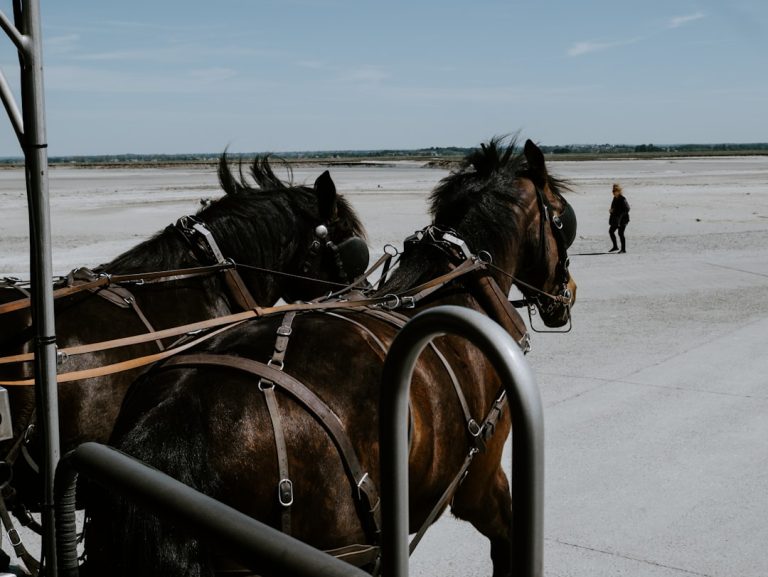
Engaging in conversation is an art that transcends mere exchange of words; it is about connecting with others on a deeper level. The choice of topics can significantly influence the flow and depth of a discussion. In a diverse society like the United States, where individuals come from various backgrounds and experiences, selecting the right conversation topics can foster understanding and camaraderie.
The key to a successful conversation lies in the ability to listen actively and respond thoughtfully. Engaging conversation topics can range from light-hearted subjects to more profound discussions about culture, history, and personal experiences.
By exploring these themes, individuals can not only share their perspectives but also learn from others, enriching their understanding of the world around them. This article delves into various engaging conversation topics that can spark interest and promote connection among individuals in the American context.
Key Takeaways
- Engaging conversation topics can include American culture, current events, history, food, travel, sports, and personal experiences.
- American culture and traditions encompass a diverse range of customs, holidays, and social norms that vary across different regions of the country.
- Staying updated on current events and news in the USA can provide valuable insights for engaging conversations and understanding the country’s social and political climate.
- American history and landmarks offer rich conversation topics, from the founding of the nation to iconic landmarks like the Statue of Liberty and the Grand Canyon.
- Food and cuisine in the USA reflect the country’s multicultural heritage, with popular dishes ranging from fast food to regional specialties like Tex-Mex and Southern barbecue.
American Culture and Traditions
American culture is a rich tapestry woven from the threads of various ethnicities, traditions, and historical influences. From the vibrant celebrations of holidays like Thanksgiving and Independence Day to the more localized customs that vary from state to state, American culture is characterized by its diversity and adaptability. For instance, Thanksgiving, celebrated on the fourth Thursday of November, is a time when families gather to share a meal that typically includes turkey, stuffing, and pumpkin pie.
This holiday not only reflects the agricultural roots of the nation but also serves as a reminder of the importance of gratitude and community. In addition to holidays, American culture is also expressed through music, art, and literature. The United States has produced a plethora of influential artists and musicians who have shaped global culture.
Genres such as jazz, blues, rock ‘n’ roll, and hip-hop originated in America and have had a profound impact on music worldwide. The Harlem Renaissance of the 1920s, for example, was a cultural movement that celebrated African American artistic expression and laid the groundwork for future generations of artists. Discussing these cultural phenomena can lead to rich conversations about identity, creativity, and the ways in which culture evolves over time.
Current Events and News

In an age where information is readily accessible, discussing current events can be both enlightening and challenging. The rapid pace of news cycles means that topics can shift quickly, making it essential to stay informed about local, national, and global issues. Conversations about current events can cover a wide range of subjects, including politics, environmental concerns, social justice movements, and technological advancements.
For instance, discussions surrounding climate change have gained significant traction in recent years, prompting conversations about sustainability practices and individual responsibility. Moreover, current events often intersect with personal experiences and opinions, making them ripe for discussion. For example, the COVID-19 pandemic has not only affected public health but has also reshaped how people view work-life balance, education, and community engagement.
Conversations about the pandemic can lead to reflections on resilience, adaptability, and the importance of mental health. Engaging in discussions about current events allows individuals to share their viewpoints while also considering alternative perspectives, fostering a more nuanced understanding of complex issues.
American History and Landmarks
| Landmark | Location | Year Built |
|---|---|---|
| Statue of Liberty | New York City, New York | 1886 |
| Mount Rushmore | Keystone, South Dakota | 1927-1941 |
| Independence Hall | Philadelphia, Pennsylvania | 1753 |
| Golden Gate Bridge | San Francisco, California | 1937 |
The history of the United States is marked by significant events that have shaped its identity and values. From the founding principles outlined in the Declaration of Independence to the civil rights movements that sought to address systemic inequalities, American history is a narrative of struggle, progress, and resilience. Engaging in conversations about historical events can provide context for contemporary issues and highlight the lessons learned from the past.
For instance, discussing the impact of the Civil War on modern American society can lead to deeper insights into ongoing discussions about race relations and social justice. American landmarks also serve as tangible connections to history. Places like Independence Hall in Philadelphia, where the Declaration of Independence was signed, or the Lincoln Memorial in Washington D.C., which honors President Abraham Lincoln’s legacy in promoting equality, are not just tourist attractions; they are symbols of the nation’s journey.
Conversations about these landmarks can evoke personal stories related to visits or family histories tied to significant events. Sharing experiences related to these sites can create a sense of shared heritage and foster a deeper appreciation for the nation’s complex narrative.
Food and Cuisine in the USA
The culinary landscape of the United States is as diverse as its population. Each region boasts its own unique flavors and dishes that reflect local ingredients and cultural influences. From Southern comfort food like fried chicken and collard greens to New England clam chowder and California’s fresh farm-to-table cuisine, American food is a celebration of regional identity.
Engaging in conversations about food can evoke nostalgia and personal stories related to family recipes or memorable dining experiences. Moreover, food often serves as a gateway to discussing broader cultural themes such as immigration and globalization. The rise of fusion cuisine exemplifies how different culinary traditions can blend to create something new and exciting.
For instance, Korean tacos—a combination of traditional Korean ingredients served in a taco format—have gained popularity in cities like Los Angeles, showcasing how food can bridge cultural divides. Conversations about food not only allow individuals to share their tastes but also encourage discussions about cultural exchange and innovation.
Travel and Tourism

Traveling within the United States offers a wealth of opportunities to explore diverse landscapes, cultures, and experiences. From the majestic national parks like Yellowstone and Yosemite to vibrant urban centers such as New York City and San Francisco, each destination has its own unique charm. Engaging in conversations about travel can inspire wanderlust and provide insights into different regions’ attractions and hidden gems.
Sharing personal travel stories can lead to discussions about adventure, discovery, and even challenges faced while exploring new places. Tourism also plays a significant role in local economies and cultural preservation. Many towns rely on tourism as a primary source of income, which can lead to conversations about sustainability practices in travel.
For example, eco-tourism initiatives aim to minimize environmental impact while promoting conservation efforts. Discussing these topics can encourage individuals to think critically about their travel choices and their effects on local communities. Conversations about travel not only highlight personal experiences but also foster an appreciation for the beauty and diversity found across the nation.
Sports and Entertainment
Sports are an integral part of American culture, serving as both a source of entertainment and a means of fostering community spirit. Major leagues such as the NFL (National Football League), NBA (National Basketball Association), and MLB (Major League Baseball) attract millions of fans who passionately support their teams. Engaging in conversations about sports can evoke strong emotions as individuals share their favorite teams’ triumphs or disappointments.
Entertainment extends beyond sports into various forms such as film, television, music, and theater. Hollywood remains a global hub for filmmaking, producing iconic movies that resonate with audiences worldwide.
Discussing recent films or popular television series can lead to conversations about storytelling techniques, representation in media, or even personal connections to certain narratives. The rise of streaming platforms has transformed how people consume entertainment, creating opportunities for discussions about binge-watching habits or favorite shows. Engaging in conversations about sports and entertainment allows individuals to bond over shared interests while exploring broader cultural themes.
Personal Experiences and Stories
At the heart of engaging conversations are personal experiences that shape individual perspectives. Sharing stories from one’s life can create connections that transcend superficial small talk. Whether it’s recounting a memorable trip taken during childhood or discussing challenges faced in pursuing a career path, personal narratives provide insight into who we are as individuals.
These stories often resonate with others who may have had similar experiences or feelings, fostering empathy and understanding. Moreover, personal experiences can serve as powerful catalysts for deeper discussions about values, beliefs, and aspirations. For instance, sharing a story about overcoming adversity can inspire others to reflect on their own challenges and triumphs.
Conversations that delve into personal experiences often reveal common threads that unite people despite their differences. By opening up about our lives—our joys, struggles, dreams—we create spaces for authentic dialogue that enriches our connections with others. Engaging conversation topics encompass a wide array of subjects that reflect the richness of American life.
From culture and history to food and personal stories, these themes provide opportunities for meaningful exchanges that foster understanding and connection among individuals from diverse backgrounds.
If you are interested in improving your English conversation skills while learning about American culture, you may also enjoy reading American English Conversation Lesson 55. This article provides valuable tips and topics for English learners to engage in meaningful conversations while living in the USA. It is a great resource for those looking to enhance their language skills and connect with others in their community.
FAQs
What are some common conversation topics for English learners living in the USA?
Some common conversation topics for English learners living in the USA include discussing hobbies and interests, talking about family and friends, sharing experiences and stories, discussing current events and news, and talking about cultural differences and similarities.
How can English learners improve their conversational skills while living in the USA?
English learners can improve their conversational skills by practicing speaking with native English speakers, participating in language exchange programs, joining conversation clubs or meetups, watching English-language TV shows and movies, and actively seeking out opportunities to engage in conversations in English.
What are some cultural differences that English learners should be aware of when living in the USA?
Some cultural differences that English learners should be aware of when living in the USA include social norms and etiquette, communication styles, attitudes towards time and punctuality, and customs related to greetings, personal space, and body language.
How can English learners initiate and maintain conversations in social settings in the USA?
English learners can initiate and maintain conversations in social settings in the USA by asking open-ended questions, actively listening to the other person, sharing their own experiences and opinions, and showing genuine interest in the topics being discussed. It’s also important to be mindful of cultural cues and nonverbal communication.






